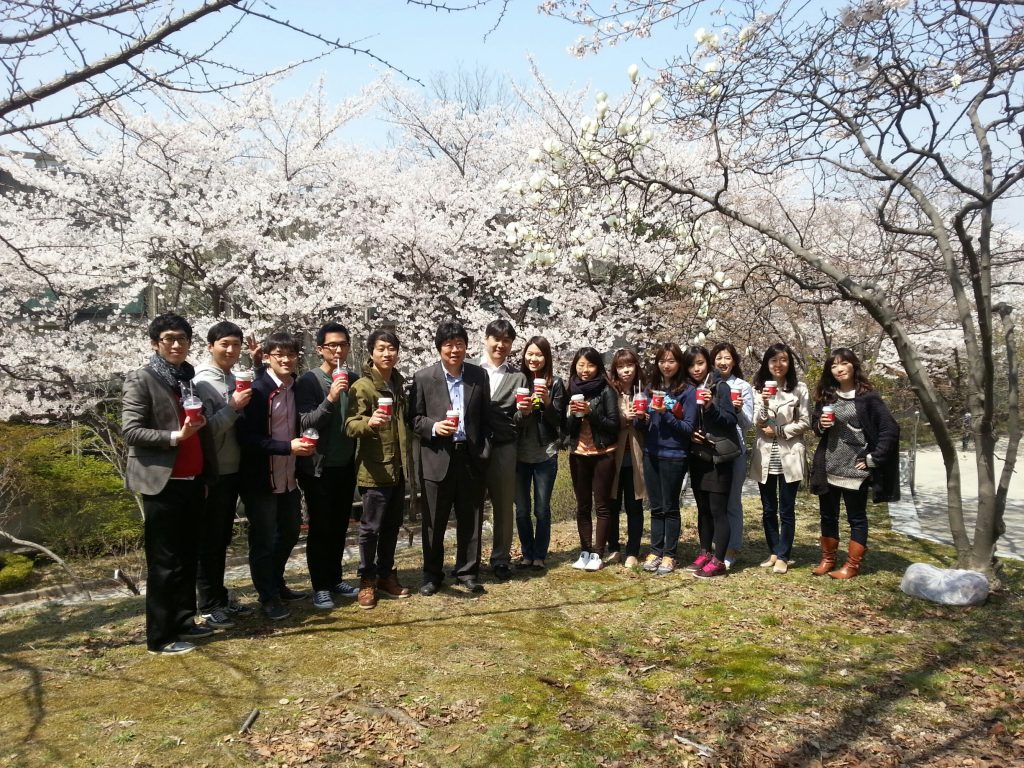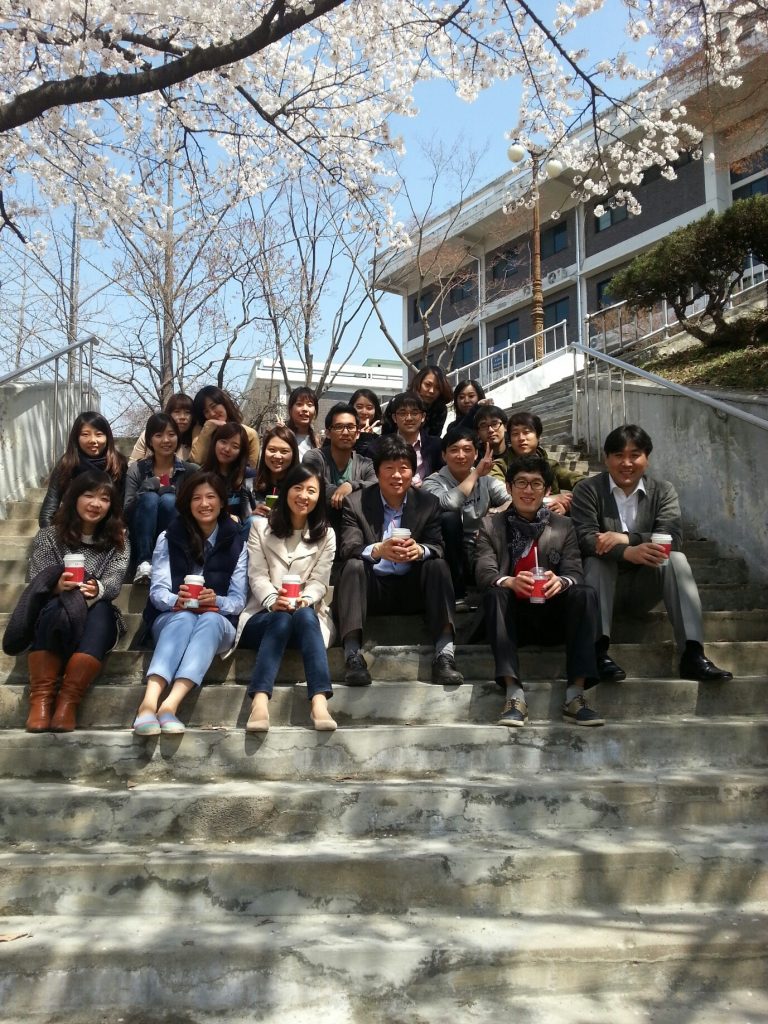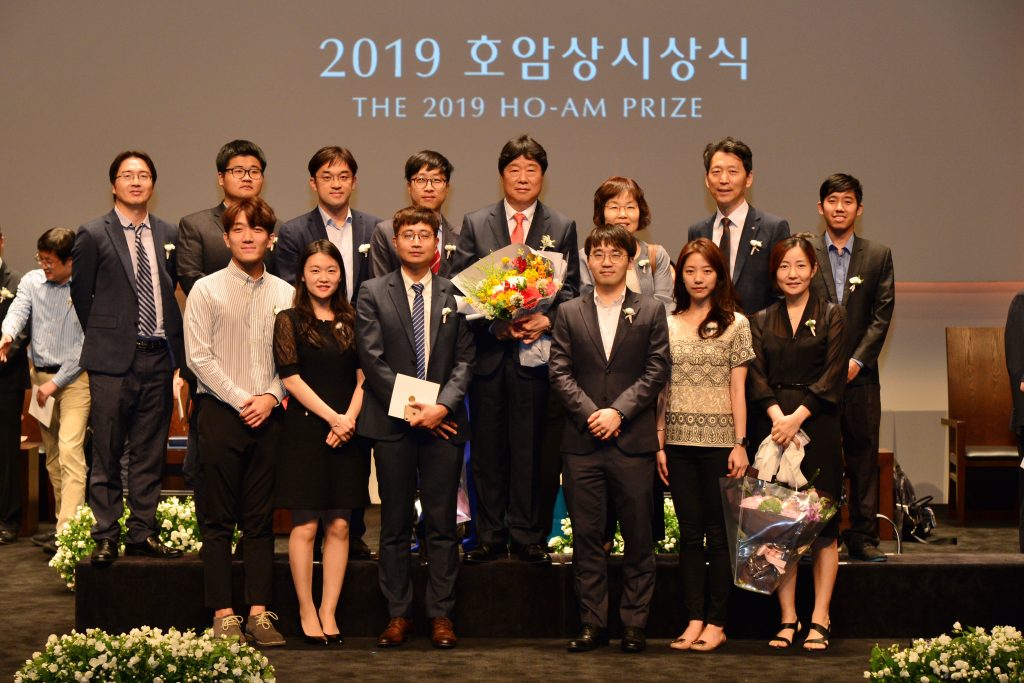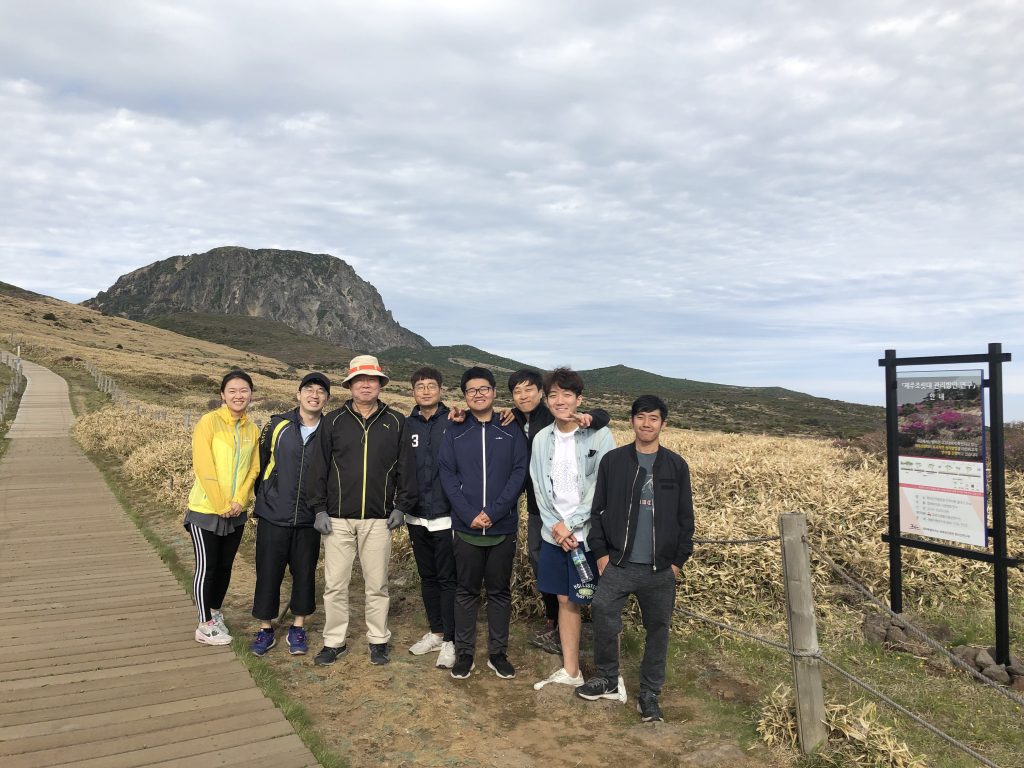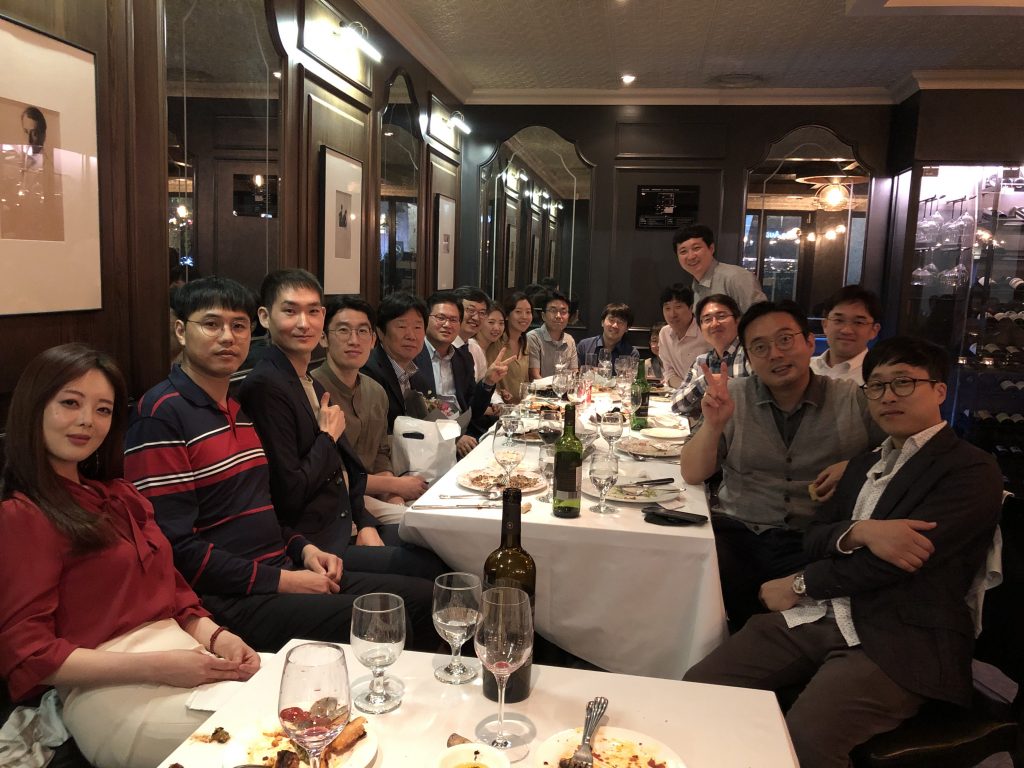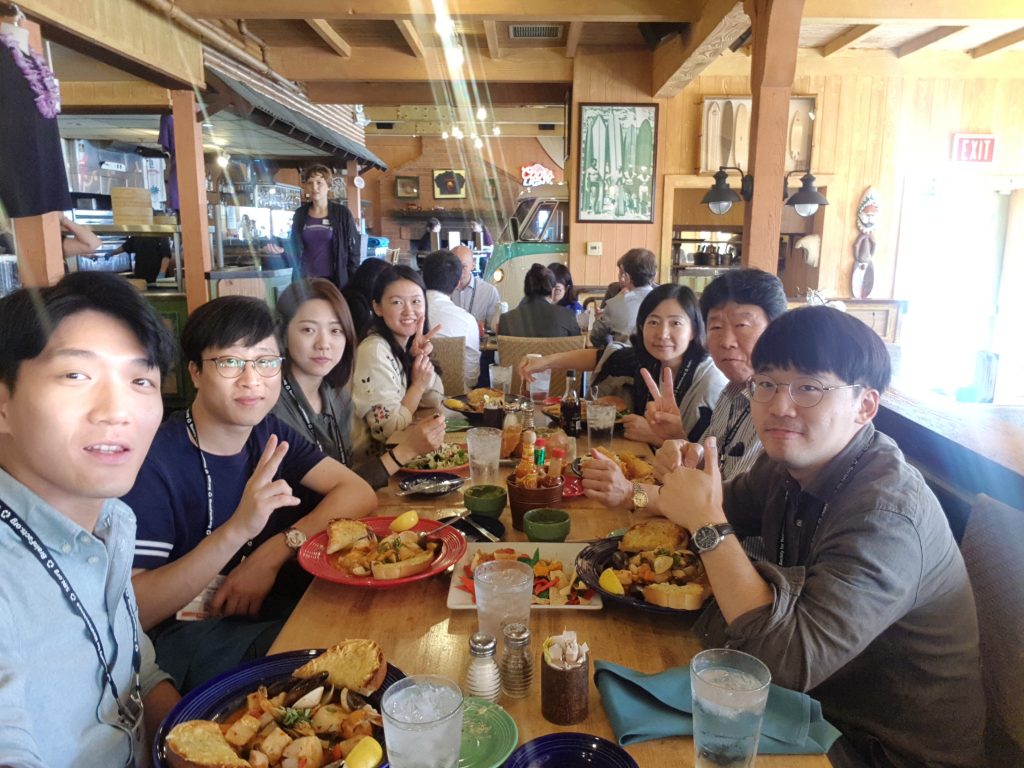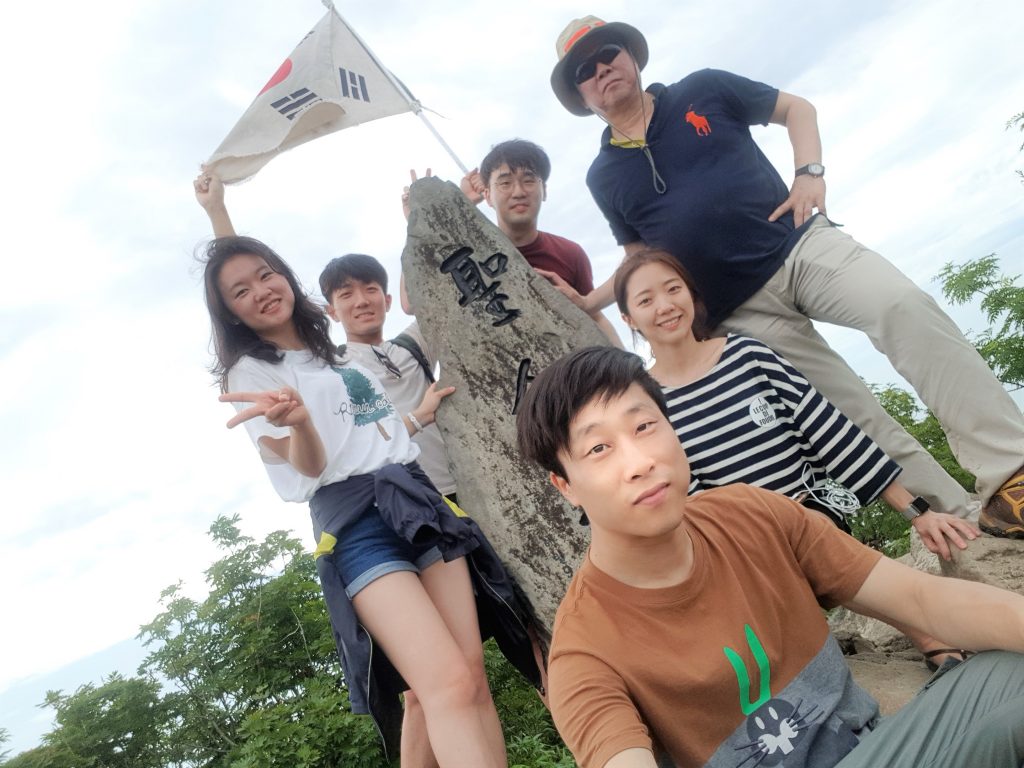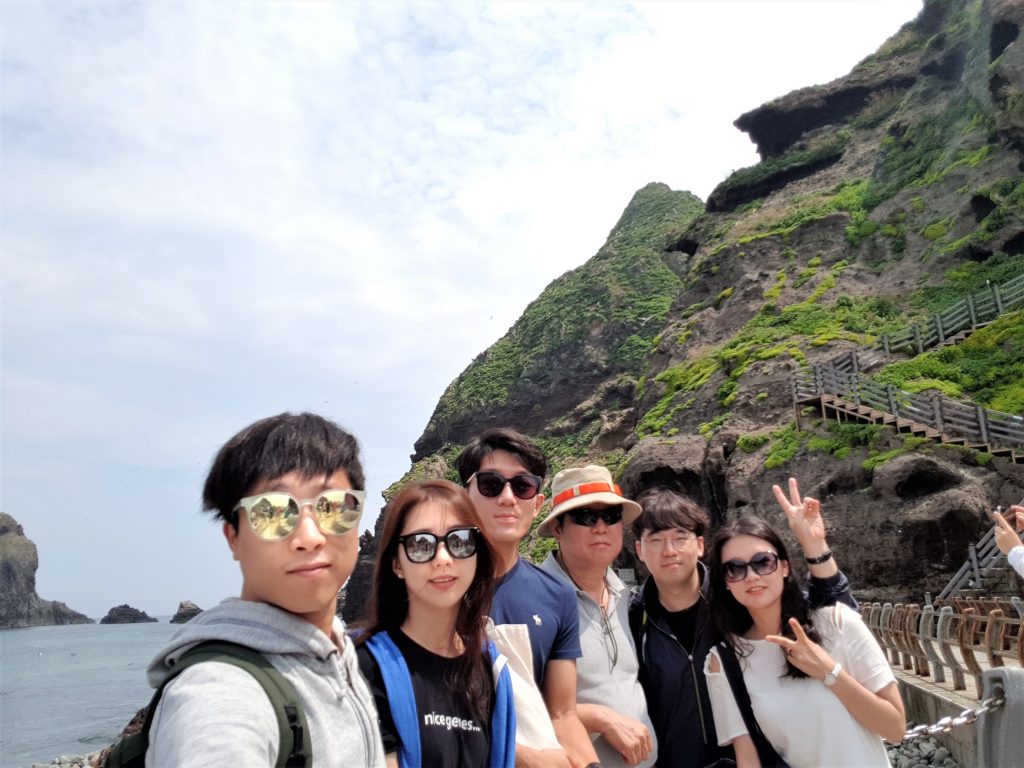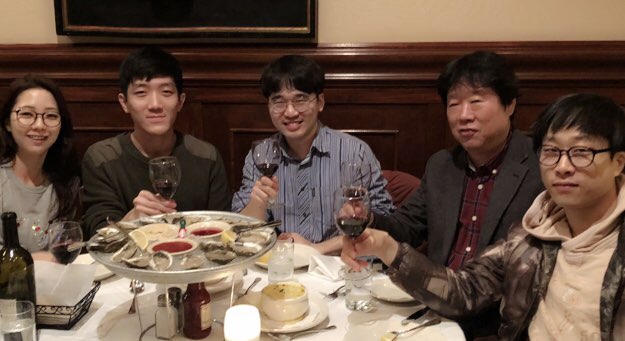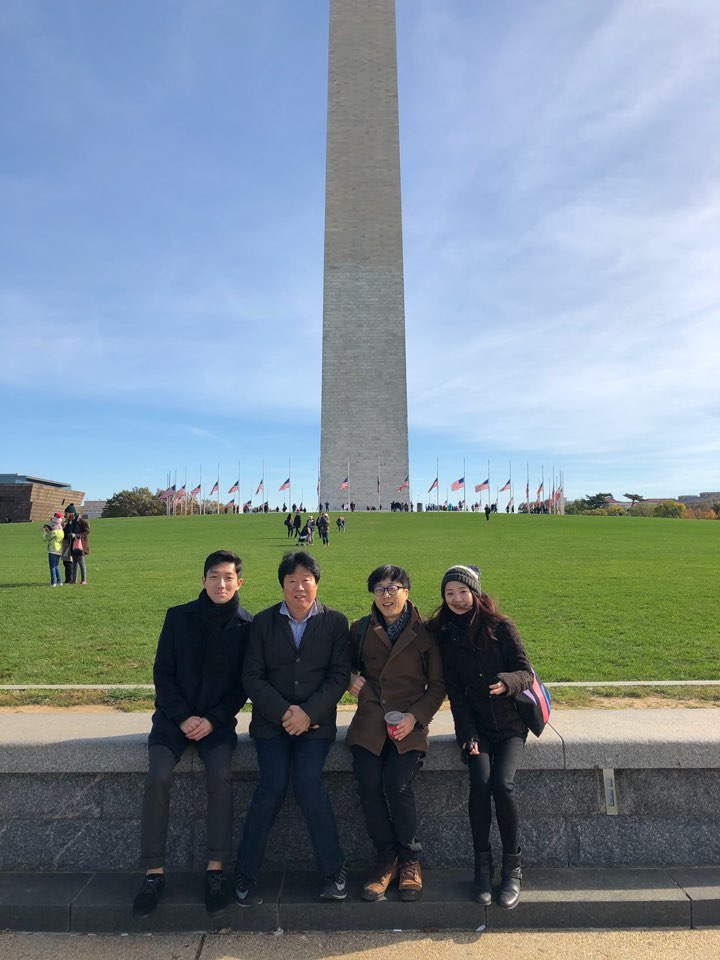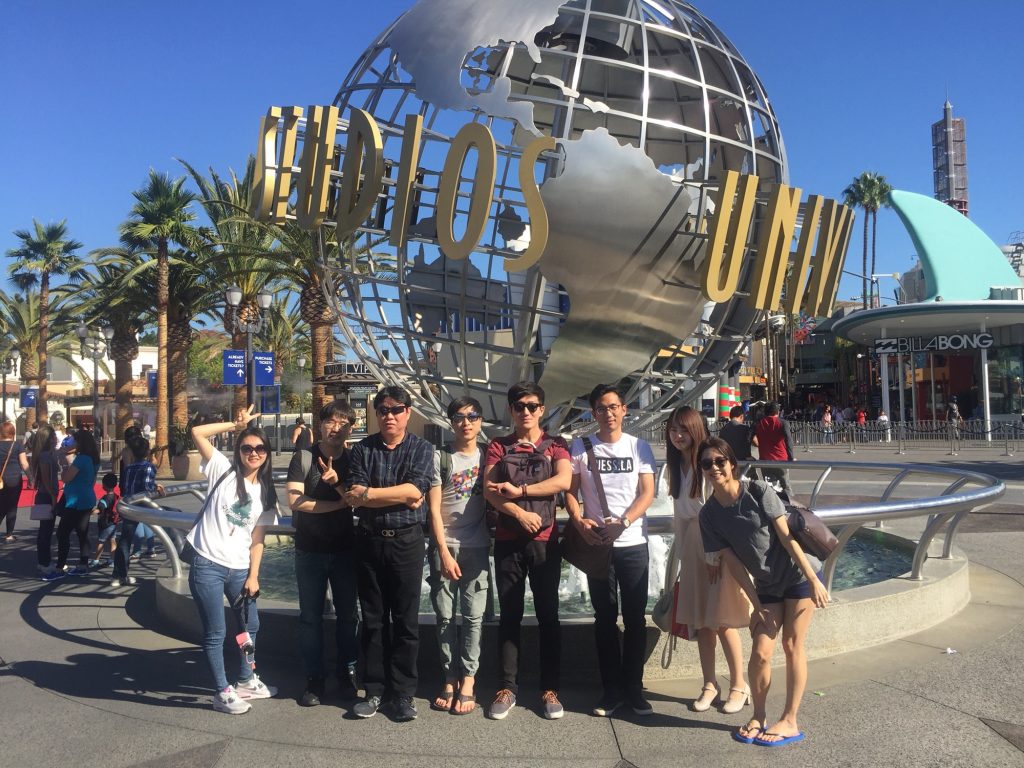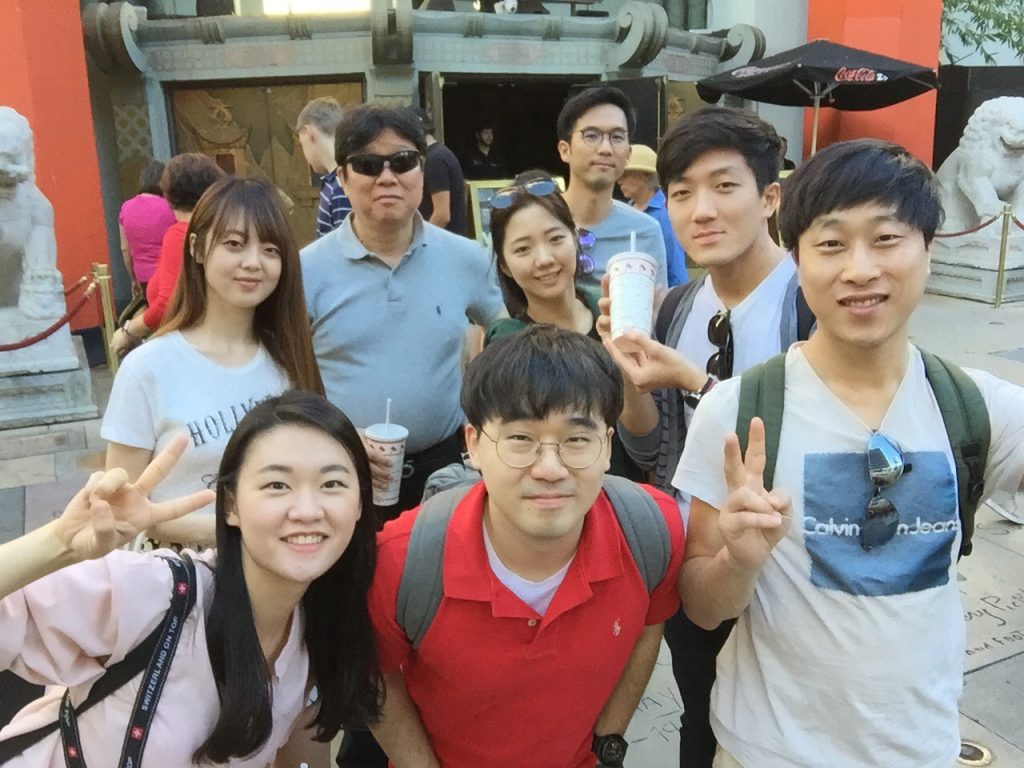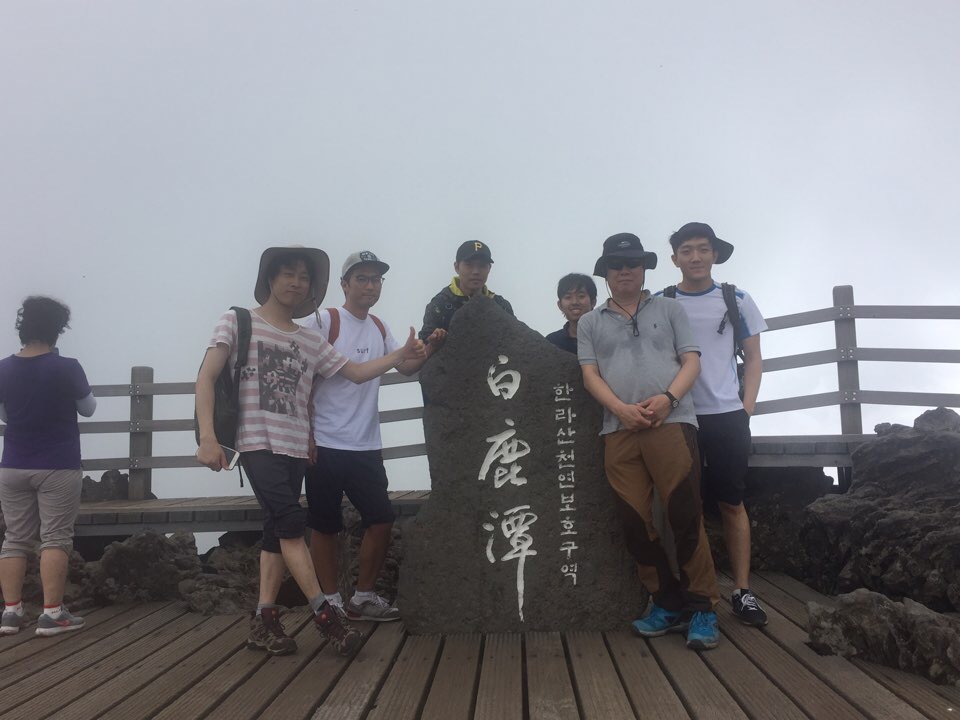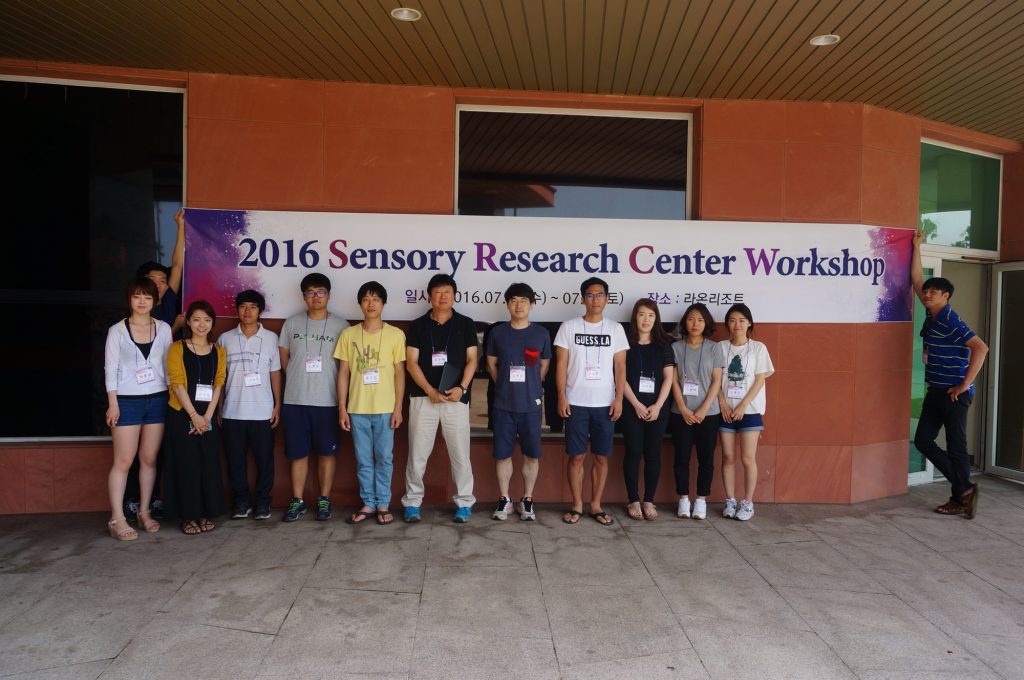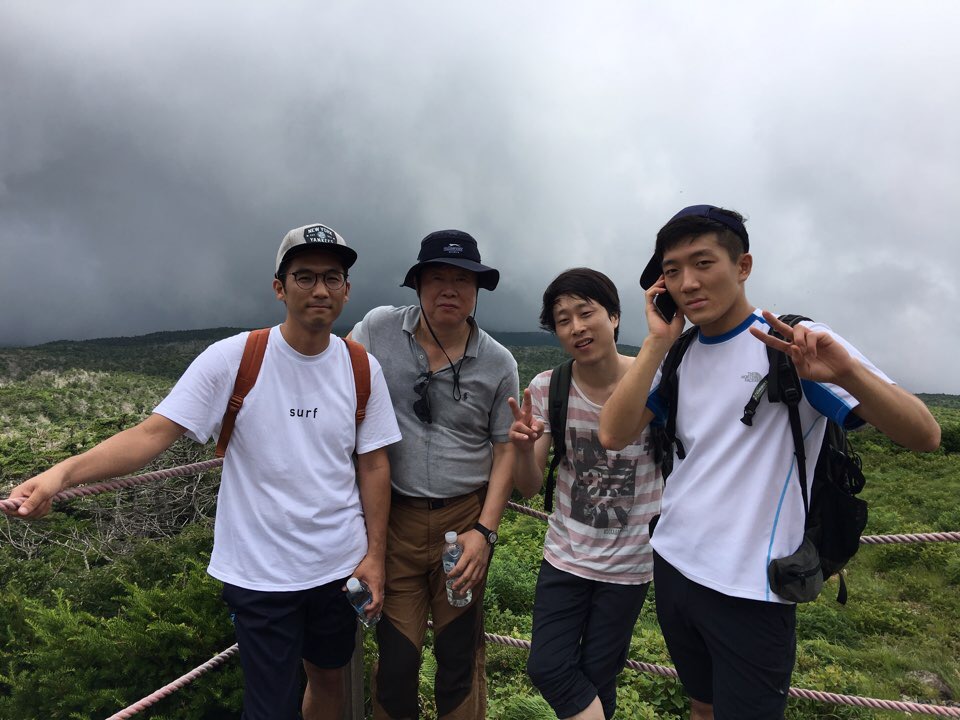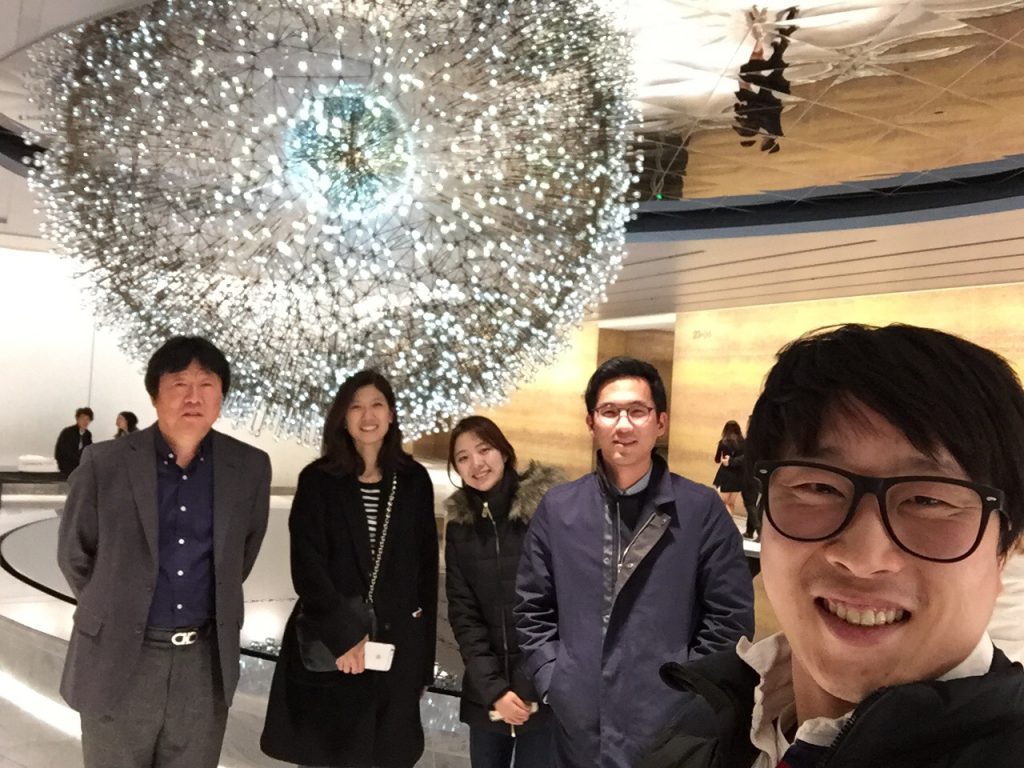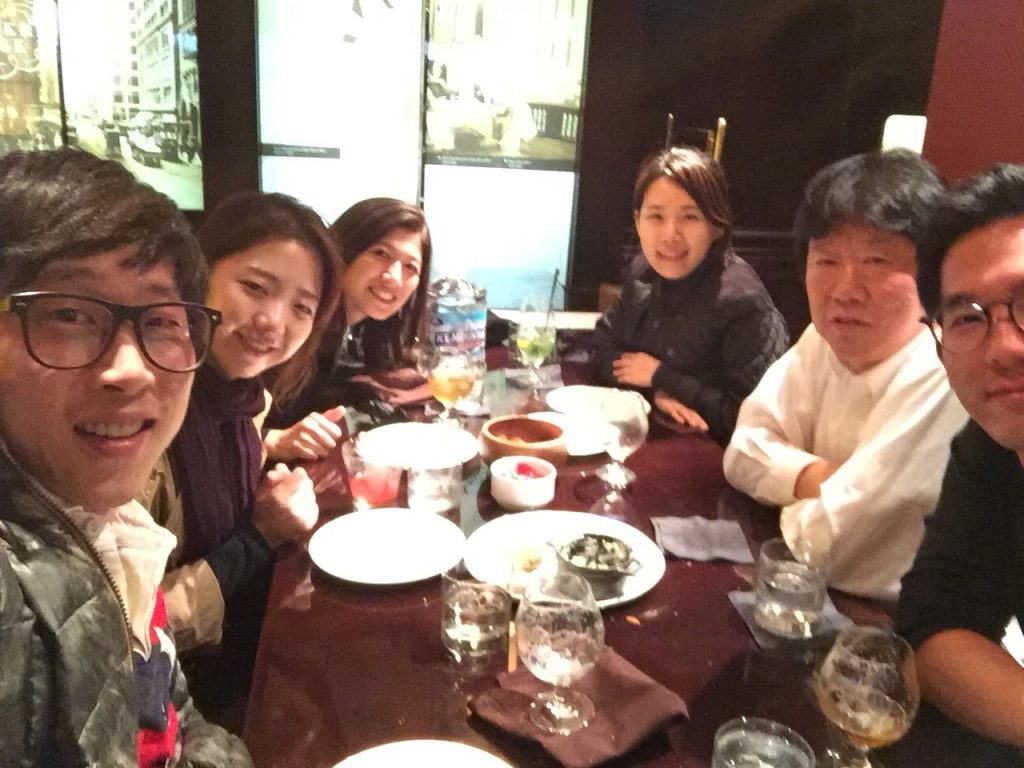
오우택, Oh, Uhtaek
EDUCATION
Ph.D. Physiology, University of Oklahoma (1987)
M.S. Biopharmaceutical Sciences, Seoul National University (1982)
B.S. Pharmacy, Seoul National University (1978)
- Principal Investigator, Brain Science Institute, Korea Institute of Science and Technology (KIST) (2022-Present)
- Director-General, Brain Science Institute, Korea Institute of Science and Technology (KIST) (2017-2021)
- President, the Korean Society for Biochemistry and Molecular Biology (2018- Present)
- President, Korean Society for Brain and Neural Science (2015)
- Chairman of the Board, Institut Pasteur-Korea (2013- 2017)
- Cloning of novel mechanically-gated channel genes
- Biophysical properties of channel gene family
- Physiological functions of ion channel genes
- Neural mechanisms underlying chronic pain & itch
- Development of novel drugs such as novel analgesics and other drugs
홍규상, Gyu-Sang Hong
EDUCATION
MS/Ph.D. Medicine and Biopharmaceutical Sciences, Seoul National University (2010-2016)
B.S. Bio & Nano chemistry Kookmin University, Seoul, Korea (2001-2008)
- Assistant Professor, Neuroscience in Division of Biomedical Sci. & Tech. in University of Science and Technology (KIST-School) (2021-Present)
- Senior Researcher, Brain Science Institute, Korea Institute of Science and Technology (KIST) (2018-Present)
- Postdoctoral Researcher, Brain Science Institute, Korea Institute of Science and Technology (KIST) (2016-2018)
- Postdoctoral Researcher, Seoul National University (2016)
- Mechanobiology in Neural Stem Cells and related Disorders
- Understanding of Memory and Neurogenesis (Brain Disorders)
- Molecular Mechanism and Biophysics of Ion Channels
- Development of Novel Drugs
Hyungsup Kim
EDUCATION
Ph.D. College of Pharmacy, Seoul National University
B.S. College of Pharmacy, Seoul National University
- Physiological functions of Anoctamin channel genes
- Sensory transduction
Bok Eum Kang
EDUCATION
Ph.D. Division of Biomedical Science and Technology, Korea Institute of Sci & Tech (2020)
BS DePauw University
- Mechanosensor
- Pharmacological effect of Plant on Nervous system
Pa Reum Lee
EDUCATION
Ph.D. Department of Brain and Cognitive Sciences, Seoul National University (2020)
B.S. School of Life Science, Handong Global University
- Mechanotransduction
- Pain
Kyungmin Kim
EDUCATION
PhD in Seoul National University (2021)
BS in Catholic Universty
- Mechanobiology and Ion channels in Neurogenesis
- Neural Development and related Disorders
JUNWEON BYUN
EDUCATION
PhD in University of Sci & Tech (IBS-School)(2022)
B.S. School of Life Science, Handong Global University
- Ion channel mechanism and brain disorders
Nguyen Thien Luan, MD.
EDUCATION
Ph.D. candidate in College of Pharmacy, Seoul National University
- Sensory transduction
- Mechanotransduction
Sungmin Pak
EDUCATION
Ph.D. candidate in College of Pharmacy, Seoul National University
- Sensory transduction
- Mechanotransduction
Taewoong Ha
EDUCATION
Ph.D. candidate in Life Science , Korea University
- Mechanobiology in Sensory Transduction
- Pharmacological effect of Plant on Nervous system
Mi-Sun Kim
EDUCATION
MS in Jeonbuk National University
- Pharmacological effect of Plant on Nervous system
Sujin Lim
EDUCATION
MS/Ph.D. Course in Seoul National University
- Sensory transduction and brain disorders
Jaehyouk Choi
EDUCATION
Ph.D. Division of Biomedical Science and Technology, Korea Institute of Sci & Tech
MS College of Medicine, Seoul National University
- Learning and Memory
- The role of ion channel in the hippocampus
Hyesu Kim
EDUCATION
Ph.D. in Molecular Medicine and Biopharmaceutical Sciences, Seoul National University
- Itch Mechanism
Channels are proteins present in the plasma membranes of all types of cells, including bacteria. Channels are activated by numerous stimuli such as electric voltage, mechanical agitation, heat, Ca2+, and ligands. When activated, they adjust membrane potentials as well as intracellular Ca2+ concentration, thereby mediating numerous physiological functions. As a result, dysfunctions in these channels can result in numerous chronic diseases. The main focus of our laboratory is to clone novel channels using cutting-edge technologies such as bioinformatics.
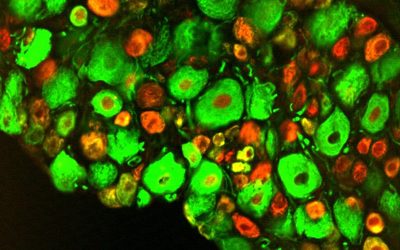
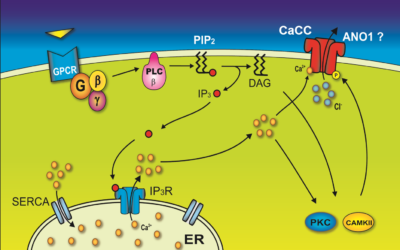
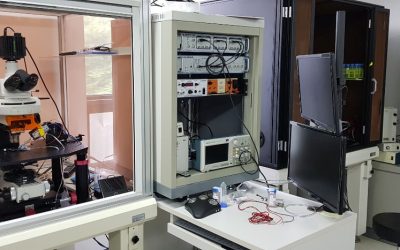
Channels have their own unique properties: ion selectivity, activation mechanisms, pharmacology, modulation by cellular signals, etc. Using patch-clamp techniques, the ion channels are studied from cell lines, primary cultured cells or tissues in order to identify and characterize the channels’ biophysical properties.
By using various techniques for generating knock-out or knock-in mice, our laboratory seeks to define the physiological and pathological functions of channels. Anoctamins and mechanosensitive channels are our primary targets of study. And tissue-specific gene ablation in mice is preferred using the Cre-lox system.
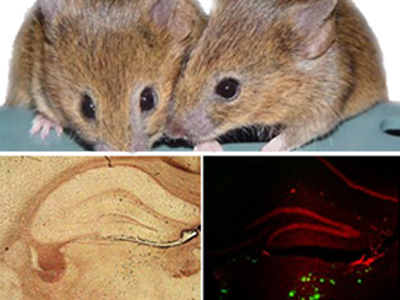
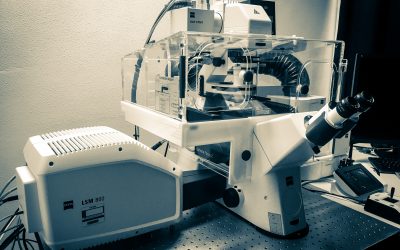
Because channels mediate numerous key functions, defects can lead to chronic—often fatal—diseases. An example of this is cystic fibrosis, which results from loss-of-function mutations in a CFTR chloride channel. Therefore, chemicals that modulate channel activity are strong candidates for treating chronic diseases, which is why our center is diligently working to seek them out. Our center’s high throughput screening system will further aid us in finding new channel modulators from chemical libraries.
- ‘The Nociceptive Membrane’, The Current Topics in Membranes Vol 57, Editor: Uhtaek Oh, Elsevier (2006)
- Kim HS, et al. Amplification of olfactory signals by anoctamin 9 is important for mammalian olfaction. Prog Neurobiol. 219 (2022) doi: 10.1016/j.pneurobio.2022.102369.
- Kim H, Kim H, Cho H, Lee B, Lu H-J, Kim K, Chung S, Shim S-W, Shin Y-K, DongX, Wood J, and Oh U. Anoctamin 1/TMEM16A in pruritoceptors isessential for Mas-related G protein receptor-dependent itch. Pain 163(11):2172-2184 (2022). doi: 10.1097/j.pain.0000000000002611.
- Wee J, Pak S, Kim T, Hong G-S, Lee JS, Nan J, Kim H, Lee M-O, Park KS, Oh U. Tentonin3/TMEM150C regulates glucose-stimulated insulin secretion in pancreatic β-cells. Cell Rep 37:110067 (2021).
- Tentonin 3/TMEM150C senses blood pressure changes in the aortic arch. Huan-Jun Lu,1,2 Thien-Luan Nguyen,1,2 Gyu-Sang Hong,1 Sungmin Pak,1 Hyesu Kim,1 Hyungsup Kim,1 Dong-Yoon Kim,3 Sung-Yon Kim,3 Yiming Shen,4 Pan Dong Ryu,4 Mi-Ock Lee,2 and Uhtaek Oh1. J Clin Invest. 2020;130(7):3671–3683.
- Ano1/TMEM16A Regulates Process Maturation in Radial Glial Cells in the Developing Brain. Hong GS*, Lee SH*, Lee BJ, Jang Y, Jung J, Kim IB, Oh U. Proc Natl Acad Sci U S A. (2019)
- Anoctamin 9/TMEM16J is a cation channel activated by cAMP/PKA signal. Kim H, Kim H, Lee J, Lee B, Kim HR, Jung J, Lee MO, Oh U. Cell Calcium (2018)
- Evidence for Mechanosensitive Channel Activity of Tentonin 3/TMEM150C. Hong GS, Lee B, Oh U. Neuron (2017)
- Tentonin 3/TMEM150c confers distinct mechanosensitive currents in dorsal-root ganglion neurons with proprioceptive function. Hong GS, Lee B, Wee J, Chun H, Kim H, Jung J, Cha JY, Riew TR, Kim GH, Kim IB, Oh U. Neuron (2016)
- Cellular functions of TMEM16/anoctamin. Uhtaek Oh & Jooyoung Jung. Pflugers Arch – Eur J Physiol, 468:443–453 (2016)
- TRPM2, a Susceptibility Gene for Bipolar Disorder, Regulates Glycogen Synthase Kinase-3 Activity in the Brain. Jang Y, Lee SH, Lee B, Jung S, Khalid A, Uchida K, Tominaga M, Jeon D, Oh U. J Neurosci. Aug 26;35(34):11811-23. doi: 10.1523/JNEUROSCI.5251-14.2015. (2015)
- Protons inhibit anoctamin 1 by competing with calcium. Chun H, Cho H, Choi J, Lee J, Kim SM, Kim H, Oh U. Cell Calcium. (2015)
- Two helices in the third intracellular loop determine anoctamin 1 (TMEM16A) activation by calcium. Lee J, Jung J, Tak MH, Wee J, Lee B, Jang Y, Chun H, Yang DJ, Yang YD, Park SH, Han BW, Hyun S, Yu J, Cho H, Hartzell HC, Oh U. Pflugers Arch. Aug;467(8):1677-87. doi: 10.1007/s00424-014-1603-2. Epub 2014 Sep 19. (2015)
- Anoctamin 1 (TMEM16A) is essential for testosterone-induced prostate hyperplasia. Cha JY, Wee J, Jung J, Jang Y, Lee B, Hong GS, Chang BC, Choi YL, Shin YK, Min HY, Lee HY, Na TY, Lee MO, Oh U. Proc Natl Acad Sci U S A. Aug 4;112(31):9722-7. doi: 10.1073/pnas.1423827112. Epub 2015 Jul 7. (2015)
- Anoctamin 1 in secretory epithelia. Jang Y, Oh U. Cell Calcium. Jun;55(6):355-61. doi: 10.1016/j.ceca.2014.02.006. Epub 2014 Feb 15. Review. (2014)
- TRPM2 mediates the lysophosphatidic acid-induced neurite retraction in the developing brain. Jang Y, Lee MH, Lee J, Jung J, Lee SH, Yang DJ, Kim BW, Son H, Lee B, Chang S, Mori Y, Oh U. Pflugers Arch. Oct;466(10):1987-98. doi: 10.1007/s00424-013-1436-4. Epub 2014 Jan 11 (2014)
- Anoctamin 1 contributes to inflammatory and nerve-injury induced hypersensitivity. Lee B, Cho H, Jung J, Yang YD, Yang DJ, Oh U. Mol Pain. 2014 Jan 23;10:5. doi: 10.1186/1744-8069-10-5. (2014)
- Anoctamin 1 mediates thermal pain as a heat sensor. Cho H, Oh U. Curr Neuropharmacol. Dec;11(6):641-51. doi: 10.2174/1570159X113119990038. PMID: 24396339 (2013)
- Presynaptic localization and possible function of Calcium-activated chloride channel anonctamin 1 in the mammalian retina. Jeon, PLOS One 8(6):e67989 Print (2013)
- Anoctamin 1 mediates Thermal Pain as a Heat Sensor. Cho H and Oh U. Curr Neuropharmacol 11(5): 1 (2013)
- Voluntary movements as a possible non-reflexive pain assay. Cho H, Jang Y, Lee B, Chun H, Jung J, Kim SM, Hwang SW, Oh U. Mol Pain. 2013 May 20;9:25. doi: 10.1186/1744-8069-9-25. (2013)
- A role for Piezo2 in EPAC1-dependent mechanical allodynia. Eijkelkamp N, Linley JE, Torres JM, Bee L, Dickenson AH, Gringhuis M, Minett MS, Hong GS, Lee E, Oh U, Ishikawa Y, Zwartkuis FJ, Cox JJ, Wood JN. Nat Commun. 2013;4:1682. doi: 10.1038/ncomms2673. (2013)
- Dynamic modulation of ANO1/TMEM16A HCO3-permeability by Ca2+/calmodulin. Jung J, Nam JH, Park HW, Oh U, Yoon J-H, and Lee MG. Proc Natl Acad Sci USA 110(1):360-365 (2013)
- Ghrelin receptor is activated by naringin and naringenin, constituents of a prokinetic agent Poncirus fructus. Jang Y, Kim SW, Oh J, Hong GS, Seo EK, Oh U, Shim WS. J Ethnopharmacol. Jul 9;148(2):459-65. doi: 10.1016/j.jep.2013.04.039. Epub 2013 Apr 29. (2013)
- Characterization of the arginylation branch of the N-end rule pathway in G-protein-mediated proliferation and signaling of cardiomyocytes. Lee MJ, Kim DE, Zakrzewska A, Yoo YD, Kim S, Kim ST, Seo JW, Lee YS, Dorn GW, Oh U, Kim BY, Kwon YT. J Biol Chem. 87(28):24043-24052 (2012)
- The Calcium-activated Chloride Channel Anoctamin 1 acts as a Heat Sensor in Nociceptive Neurons. Cho H, Yang YD, Lee J, Lee B, Jang Y, Cho Y, Back SK, Na HS, Harfe BD, Wang F, Raouf R, Wood JN, and Oh U. Nat Neurosci 15:1015-1021 (2012)
- Axonal neuropathy-associated TRPV4 regulates neurotrophic factor-derived axonal growth. Jang Y, Jung J, Kim H, Oh J, Jeon JH, Jung S, Kim K-T, Cho H, Yang D-J, Kim SM, Kim IB, Song M-R, and Oh U. J Biol Chem 287:6014-6024 (2012)
- From transduction to pain sensation: defining genes, cells, and circuits. Liu M, Oh U, and Wood J. Pain 152:S16-19 (2011)
- TRPM8 mediates cold and menthol allergies associated with mast cell activation. Cho Y, Jang Y, Lee C-H, Yang YD, Lee Y, and Oh U. Cell Calcium, 48(4):202-208 (2010)
- Peripheral mechanisms of pain and analgesia. Stein C, Clark JD, Oh U, Vasko MR, Wilcox GL, Overland AC, Vanderah TW, Spencer RH. Brain Res Rev 60(1):90-113 (2009)
- Fat location defines sensation. Oh U and Wood J. Proc Natl Acad Sci USA 106(44): 18435 – 18436 (2009)
- TMEM16A Confers Receptor Activated Calcium-dependent Chloride Conductance. Yang YD, Cho H, Koo JY, Tak MH, Cho Y, Shim W-S, Park SP, Lee JS, Lee BJ, Kim BM, Raouf R, Shin YK, and Oh U. Nature 455(7217):1210-1215 (2008)
- Histamine-induced itch and its relationship with pain. Shim W-S and Oh U. Mol Pain 4(1):29 (2008)
- A tarantula spider toxin, GsMTx4, reduces mechanical and neuropathic pain. Park SP, Kim BM, Koo JY, Cho H, Lee CH, Kim M, Nah HS, Oh U. Pain 137(1): 208-217 (2008)
- Ablation of Ca2+ Channel {beta}3 Subunit Leads to Enhanced N-Methyl-D-aspartate Receptor-dependent Long Term Potentiation and Improved Long Term Memory. Jeon D, Song I, Guido W, Kim K, Kim E, Oh U, Shin HS. J. Biol. Chem. 283 (18): 12093-12101 (2008)
- Na(+)/Ca(2+) exchanger 2 is neuroprotective by exporting Ca(2+) during a transient focal cerebral ischemia in the mouse. Jeon D, Chu K, Jung KH, Kim M, Yoon BW, Lee CJ, Oh U, Shin HS. Cell Calcium. 43(5): 482-491 (2008)
- TRPM4b channel suppresses store-operated Ca2+ entry by a novel protein-protein interaction with the TRPC3 channel. Park JY, Hwang EM, Yarishkin O, Seo JH, Kim E, Yoo J, Yi GS, Kim DG, Park N, Ha CM, La JH, Kang D, Han J, Oh U, Hong SG. Biochem Biophys Res Comm. 368(3): 677-683 (2008)
- Oncostatin M induces growth arrest of skeletal muscle cells in G(1) phase by regulating cyclin D1 protein level. Kim H, Jo C, Jang BG, Oh U, Jo SA. Cellular Signaling. 20(1): 120-129 (2008)
2014 SfN
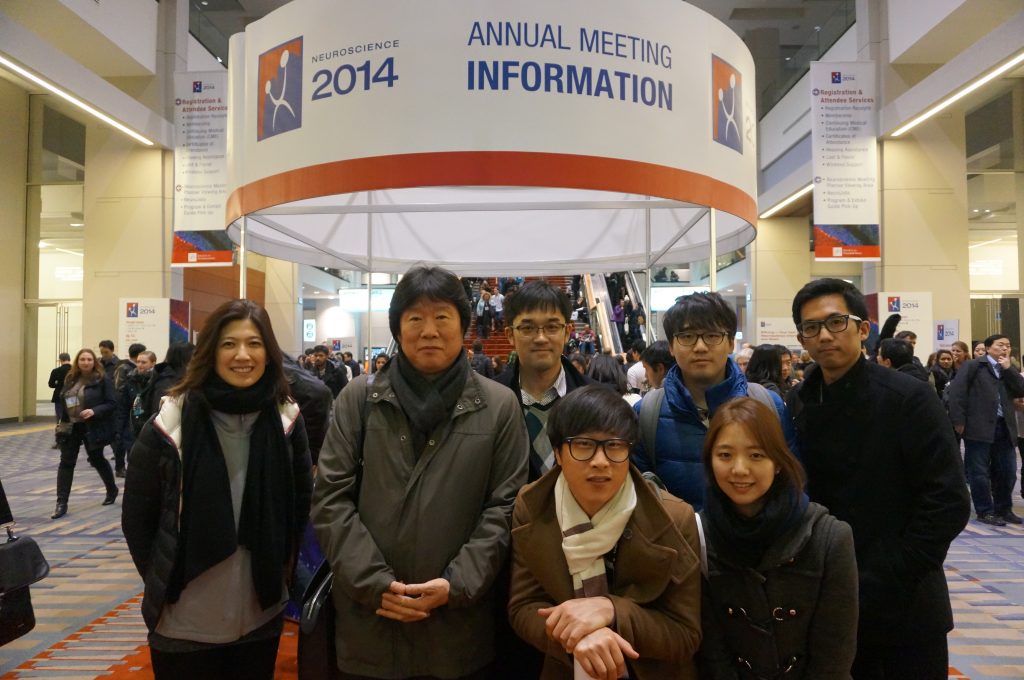

2013 SfN

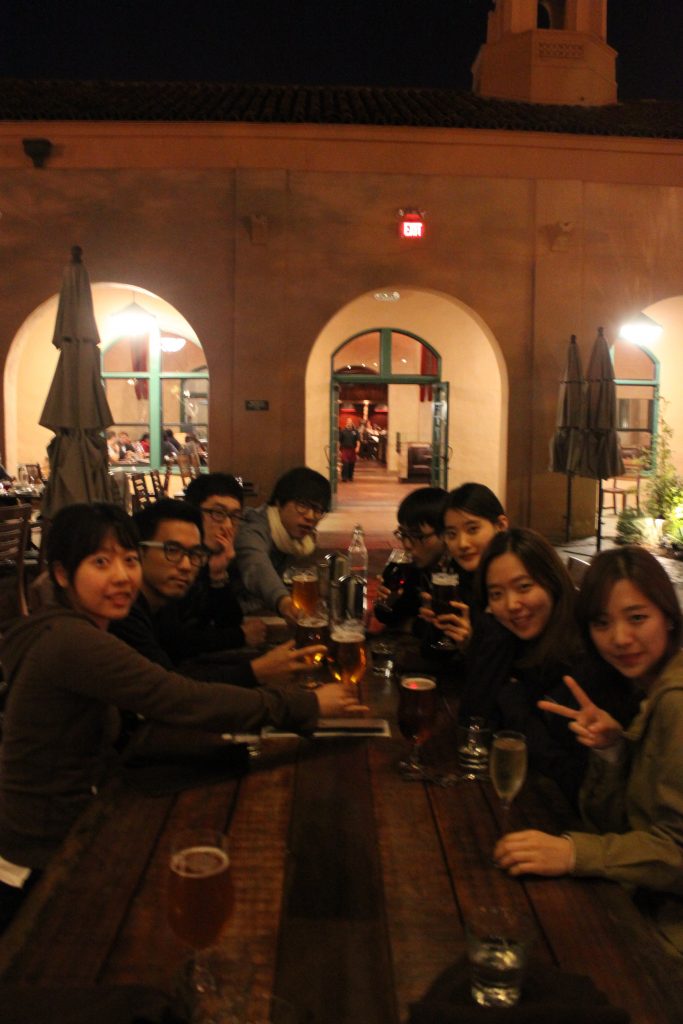

2013 SNU
